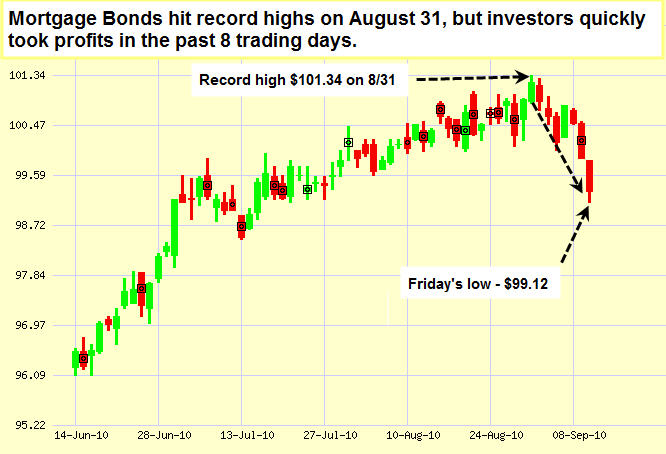Simple Formulas for Affordability and Saving
When people decide to buy a home, the monthly payment is a crucial factor. Conservative underwriting state that borrowers should allocate no more than approximately 30% of their gross monthly income for a house payment. Looked at from another perspective, this means if your monthly income is $4,000, you should keep your house payment under $1,200 a month.
How much home can you afford?
Affordability is a function of home price, interest rate and down payment.
The one key component in home affordability that is at greatest risk today is rates. The fact is that home loan rates are still at historically low levels. But they can’t stay this low forever. In fact, many experts have stated that home loan rates should really be higher than their current levels, due to some of the stimulus that has benefitted Mortgage Bonds. That means that right now homebuyers can get more for their money than they realize, but if rates go up even a little bit they could miss out.
Here’s a simple formula that drives that point home...
In simple terms, every 1% increase in home loan rates decreases the buying power of an individual by 10% in home price. This means that if you qualify for a home priced at $200,000 today and home loan rates increase 1%, the amount you could qualify for would be reduced to approximately $180,000 to maintain the same payment.
If you could benefit from moving to a new home, don't let this time pass you by. Home prices are starting to stabilize and even increase in many markets, but homes are still at incredibly affordable levels. By making a move now before home prices or rates increase, homebuyers can get more for their money and still get the payment they’re comfortable with.
And for those people who haven't refinanced in the last 18 months, today’s situation provides you with the opportunity to either cut your house payment... or save even more over the long run, by reducing the term of your mortgage to a 15 or 20 year fixed rate.
As always, I’d be happy to answer any questions and help calculate any scenarios that would help with your decision-making. Just call or email me today.
-------------------------
Economic Calendar for the Week of September 13-17, 2010
Remember, as a general rule, weaker than expected economic data is good for rates, while positive data causes rates to rise.





 In This Issue
In This Issue 




No comments:
Post a Comment